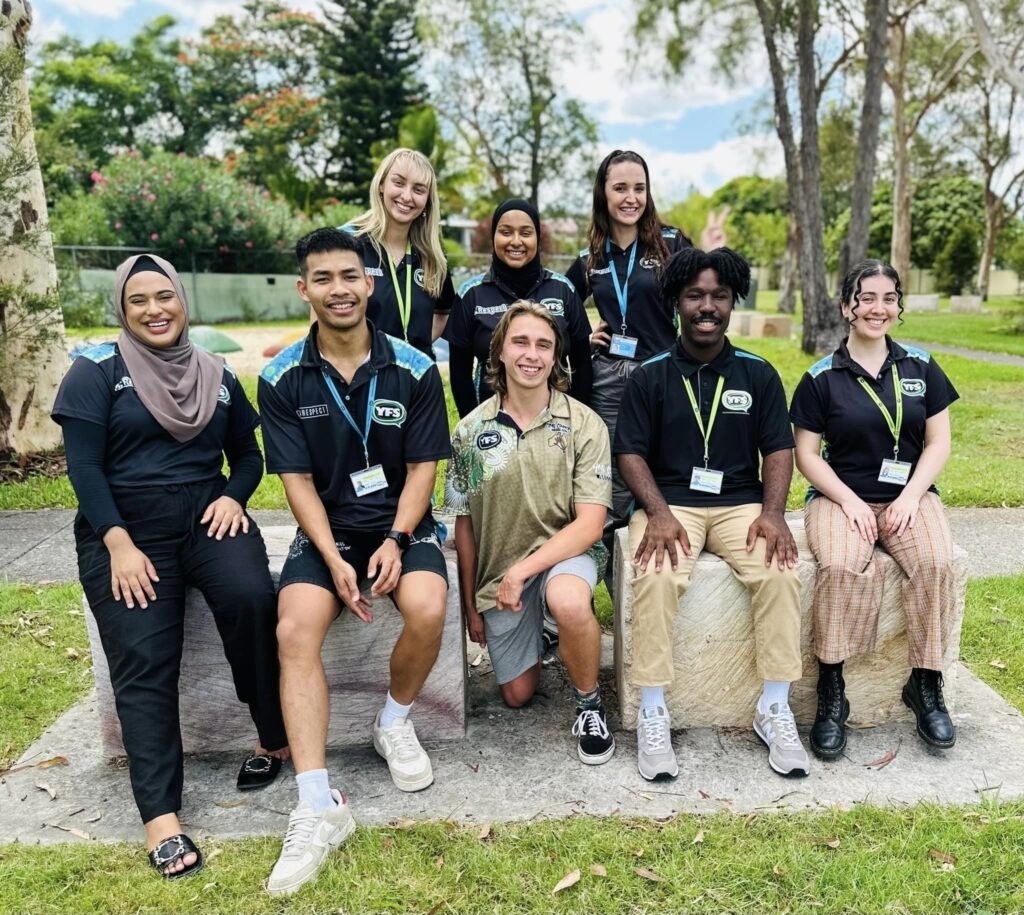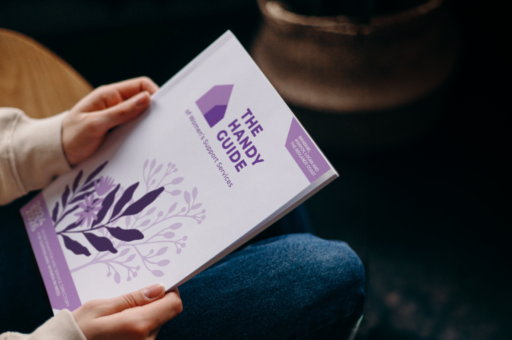
Breaking the cycle: How establishing a culture of consent can stop domestic violence
Aug 27, 2023
One in four young people think it’s normal for guys to pressure girls into sex.
One in three Australian women have experienced physical and/or sexual violence since the age of 15.
And every six days, a woman’s life is tragically cut short by a current or former partner.
These statistics are connected. They paint a stark reality about societal norms and behaviours, and the consequences of those norms and behaviours.
And they shed light on a pressing need for early education in cultivating a consent culture.
Enter R4Respect, a transformative youth mentoring program that works with schools and community groups to teach young people about respectful relationships.
Run by community services provider YFS, R4Respect is led by young people for young people. We spoke with the team from R4Respect about the importance of providing consent education early on, and how they equip young people with lifelong tools for communication and respect.
What is consent culture?
Consent culture is a culture based on positive, enthusiastic, mutual consent and respect.
“It’s about normalising conversations around consent, and creating awareness of what consent means,” says YFS’ Client Service Manager, Daniel Brookes.
“By talking more about what consent is, and what it isn’t, we can create a culture where people are more comfortable and confident to have those conversations.”
Consent embodies a clear, affirmative, ongoing agreement – an enthusiastic yes. It should not be assumed, and it cannot emerge under duress, manipulation, or the weight of obligation.
Daniel stresses that genuine consent is never coerced; it’s a voluntary choice. This, he explains, is the bedrock of consent culture – where every interaction is guided by affirmation, not assumption.
“Consent to one thing does not automatically mean consent to another activity,” he says. “You can change your mind.”
R4Respect is supported by a dynamic team of youth workers, among them a dedicated advocate named Mack.
As a passionate youth worker, Mack shares his insights into the pivotal role that R4Respect plays in dismantling gender-based violence and eradicating detrimental behaviours and attitudes.
“We talk about consent being something that you can give, but also something that you can take away as well,” says Mack.
He highlights that conversations around consent are not just about romantic relationships. “It’s also about your friendship groups, and even within your family,” he says. “Consent covers a whole bunch of relationships.”
Central to the ethos of consent culture is the ability for students to start conversations and even confront peers when needed.
“It’s really important to create an atmosphere where students are able to talk to each other,” Mack says, “and almost call each other out to say ‘hey, that’s not right’.
“We allow spaces for students to be able to learn from each other.”
Why should we be teaching consent from an early age?
R4Respect works with young people on the ground in a primary prevention model, tackling behaviours and attitudes before they escalate into family violence.
“Through programs like R4Respect, we are educating young people about consent and teaching them what is acceptable behaviour, as well as empowering them to call out inappropriate behaviour,” says Daniel .
“We are giving young people the ability, and the words, to have clear and frank conversations about what consent is. It’s important to teach young people how to speak up and call out bad behaviour.”
Mack says going out and connecting with the community is quite powerful.
“Engaging with young people face to face opens up channels of communication,” he explains. “In workshops, we ask questions like ‘Are you comfortable challenging your friends?’ This directness encourages unfiltered responses, and gives us authentic insights.”
He goes on to note the pervasive influence of toxic masculinity, an attitude that can pressure boys to conform to harmful notions and unhealthy power dynamics.
“It’s quite interesting to see how deeply entrenched it is,” he says. “Even just having those really set ideas of what gender looks like, or what healthy relationships look like.”
While young people might have some awareness of the early signs of sexual violence, the work that programs like R4Respect do is critical in shifting those gendered drivers of violence and those harmful behaviours and attitudes.
R4Respect’s outreach extends beyond schools; they also reach out to Youth Detention Centres as well.
“We’re talking to young people from quite a broad range of life experiences, which is quite important,” says Mack.
“It’s about furthering that awareness and education so that young people can make the right informed decisions for themselves.”

How consent culture can help break the cycle of domestic violence
Mack says education about consent serves as a crucial tool in dismantling the cycle of domestic and family violence – but its implications run deeper than one might think.
“There are some young people who deeply oppose that behaviour due to their personal experiences, and there are others who continue certain behaviours due to their similar experiences,” he says. “Some reject, while others persist – our challenge lies in trying to stop those intergenerational patterns.
“As a team, we recognise that some people might not be easily able to stop the violence in their own home. That’s a lot for a young person to feel like they have to do. So, our aim is to try and empower those undergoing such experiences. We give them the tools and insight to break the cycle right at its inception. Armed with knowledge, they can make informed decisions that shape their relationships, whether romantic or platonic.”
Another core facet of R4Respect’s work is initiating conversations around the diverse aspects of violence, and the distinctions between domestic and family violence for men and women.
“A lot of the time domestic and family violence takes place in a woman’s home, in what is meant to be her safe space,” Mack explains. “Whereas for men, the scenario changes, as violence tends to unfold in public – in pubs, clubs, or sporting fields. If violence does occur, it's generally seen, with surveillance cameras or police presence.”
He goes on to dissect the different dynamics at play: “For women, the risk generally arises from individuals they know, but for men, it’s more likely to be a stranger.”
Consent is a collective effort
In 2023, consent education became mandatory for all Australian school children, marking a significant step forward. But Daniel says the responsibility doesn’t solely rest with schools.
“While schools have an important role to play, it’s important to recognise that parents, primary carers, and the rest of the community also share a crucial role,” he says.
For parents and guardians, Mack underscores the potency of leading by example.
“Modelling behaviour is really powerful,” he says. “Even just having those conversations early on, and emphasising that consent doesn’t need to be about sex. Sex is one thing, but consent includes various spheres, including interacting with friends and family settings. It’s perfectly acceptable if a child doesn’t wish to give a relative a kiss, for example.”
Shaping a safer future
While mandatory consent education in Australia is a huge win, Mack says it’s important for schools to take it seriously.
“It’s vital for young people to know this stuff, but there’s a real risk if it becomes tokenistic or a tick-off-the-box thing,” he says.
“This approach could lead students to disengage. That’s why schools need to prioritise this, not only for the wellbeing of their students, but for their community as well.”
Daniel highlights the power of peer-led approaches in shaping consent education.
“Young people know what’s best for young people,” he says. “This makes peer-led approaches extremely influential. More broadly, information learnt through respectful relationships and education activities needs to be reinforced over time.”
By nurturing a generation that values consent, respects boundaries, and champions open conversations, initiatives like R4Respect are equipping young individuals to take the lead in inspiring their peers and shaping a future where domestic and family violence can be prevented.
If you would like to request a workshop from R4Respect, head over to their website and fill out this form.
If you or someone you know has experienced sexual assault, you can call 1800RESPECT at 1800 737 732, Kids Help Line at 1800 55 1800, YFS at 07 3826 1500, DV Connect at 1800 811 811 or explore additional support options like Reach Out. There are other resources available, such as Teach Us Consent or Welcome to Consent.
Beyond DV has also developed the Love&Learn Teen Relationship App, which covers financial abuse in a way that’s easy for young people to understand. The app is highly interactive and gender neutral, recognising that all genders can experience unhealthy behaviours in relationships. The app is free and available through the Apple App Store and Google Play Store.




